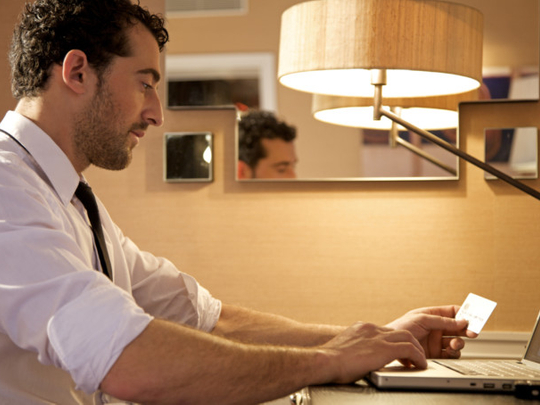
Think twice when you buy goods using plastic. Many people who carry credit and debit cards in their wallets are not aware of the differences between them.
Despite their ease of use, debit cards can pose higher risks than credit cards due to the different level of security between the two cards.
“It’s important that consumers understand the difference between a debit card and a credit card,” says John Breyault, Director of the Fraud Centre for the National Consumers League, a Washington DC-based advocacy group, and an authority in fraud prevention in the US.
“There’s a difference in how transactions are processed and in the protection offered to consumers when they use them,” Breyault adds.
The main reason for being alert when paying by debit card is that the card is a direct line to one’s bank account as opposed to a credit card where several security layers are activated by the payment process and there is no direct connection to the consumer’s account.
“It is important to be aware of the vulnerability of a debit card as card numbers and personal identification [PIN] codes can easily be hijacked,” Breyault says.
Rise in fraud warning
The US Mission to the UAE released a warning earlier this year on the rise in debit card fraud in Abu Dhabi, urging expats to be on alert regarding debit card skimmers, devices that are mounted to the front of an ATM card slot that read ATM card numbers as well as PIN numbers and transmit the information to thieves nearby. Hidden cameras can also be used to capture card information and PIN, the mission says.
However, ATMs are not the only places that pose potential threats to debit card users.
Following are ten cases where debit cards should better be left in the wallet and other means of payment opted for.
Never use a debit card for online payments. No matter how confident you are about the security provisions of an online shop, there might always be a leak in the direct connection between the website’s payment system and your individual bank account. In case of a fraudulent booking, it is also a far greater hassle to get your money back because of differing refund policies of the banks and a higher purchaser’s liability than if the payment had been made by credit card.
Don’t make deposit payments with your debit card. While the deposit is directly booked from your debit account, a credit card deposit is only blocked on your credit card account until the final payment. This also applies to pay-now-take-delivery-later-type purchases.
Use credit cards for larger purchases or rentals as they offer additional insurance and refund options. A debit card normally does not offer this additional safety. If you overdraw your debit account, interest will be credited immediately as opposed to a credit card.
Don’t use a debit card if you are a first-time customer of a web shop or a street store as you don’t know how the shop is handling the payment and how reliable their refund policies are.
Don’t use debit cards in restaurants, hotels, petrol stations and similar establishments, for some might approve the card for more than your actual payment. Hotels may cover any additional expenses or damages, petrol stations may overcharge you — just in case you might dash off without settling the bill — and at restaurants for tips and service charges. All this can result in bank withdrawals that you are unaware of and could even exceed your balance and cause overdraft interest payments you may not notice.
Regular payments of membership fees, utility bills or similar shouldn’t be taken from a debit card. While automatic payments are booked from your debit account as they occur, on your credit card bill these are paid off only monthly, which gives you a far better overview of your finances. Booking recurring payments from a debit card requires keeping a cash buffer to avoid overdraft interest payments if you don’t keep up with the mathematics regularly.
Travel bookings should not be made on your debit card as the booking is immediate and can cause a hassle if your travel plans change. Credit card payments are far more flexible.
Enough cannot be said about ATM risks. Never use an ATM machine if it appears altered. Look out for glue around the keypad and card slot. A raised keypad is also an indicator that an extra layer of equipment such as a card skimmer has been installed.
Never use your debit card to place orders for delivery over the phone.
Be wary of Wi-Fi hot spots. Never use your debit card for an online purchase while at a coffee shop or other such outlets that offer free Wi-Fi access. Many of those businesses have unsecured wireless connections, so it’s much easier for hackers to log on and steal your data.










